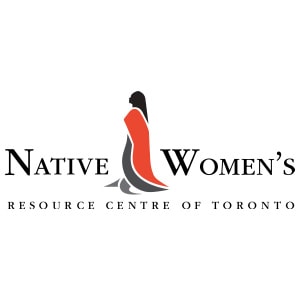Hedge funds are a wealth management investment vehicle that pools capital from individuals (or institutions). They seek to achieve superior, positive returns (“absolute returns”) regardless of market conditions. Despite their reputation for being extremely risky, their original intent was to protect (or hedge) against market volatility and to minimize risk.
To illustrate: a mutual fund (or another conventional product), might look to replicate an index, such as the TSX Composite. When the index goes up, so does the mutual fund and vice versa. A hedge fund, by contrast, seeks to maximize gains when the index moves up. Plus they aim to offset the potential losses when it goes down.

Hedge funds are less regulated than their conventional counterparts. Their managers can mix regular assets (stocks, bonds) with non-traditional ones (derivatives, forex). They use strategies that are strictly limited or not even allowed to typical funds. That includes short selling and leverage (by buying securities on margin). These operations can be used legitimately to protect a portfolio from a decline in value.
However, they also have a history of abuse by a few traders who promote speculation to benefit from market manipulation.
Available only to accredited investors
Given their lower regulation, these products are only available to accredited investors. Canadian hedge funds have a higher degree of supervision than their US counterparts through the provincial securities authorities. As a result, they tend to be more expensive.
Investors should be aware that the cost of holding a hedge fund can be high.
2 & 20 rule
A common compensation structure for the managers is the “2 & 20 rule”. This means that investors pay a 2% annual fee on the fund’s assets under management. Plus they pay 20% of the profits as a performance fee (based on a stated benchmark). The largest funds in the world, such as Bridgewater Associates, Renaissance Technologies, or the Man Group, hold massive portfolios. They can make billions in annual fees. This means that the remaining profit should be attractive enough to compensate for the expenses and the investor’s opportunity cost of capital.
Hedge funds have been around since the late 1960’s. They experienced a boost in the 1990’s when some investment bank managers went independent and launched their own funds, sometimes with bombastic marketing. By the early 2000’s, some of these funds had gone bankrupt. This did not stifle their growth. The amount of assets held by hedge funds globally is north of $3 trillion USD.
A variety of options to look into
There are many Canadian funds in the market, and they follow a wide variety of strategies that appeal to different investors. Portland’s Focus Plus Fund takes regular long positions and uses leverage to boost exposure, while Crystalline Management’s Amethyst Arbitrage Fund looks to exploit event-driven, fixed income and other market inefficiencies.
While they are small when compared to the world’s giants, Canadian hedge funds have a track record of good performance. For example, the two Scotiabank Canadian Hedge Fund indexes have mostly outperformed the TSX Composite since 2008. However, the S&P 500 has narrowed the gap and even done slightly better in the last couple of years.
Positive returns during a crisis?
For additional information, visit here.
The question on everyone’s mind is whether the sophisticated strategies used by hedge funds will prove their ability to achieve positive returns even during a major financial crisis like the present one.
There can be a 2-month lag for the relevant numbers to be published, so investors all over the world will not have to wait long before they can dive into the reports coming out between July and September.
Want to learn more?
Hedge funds can be very complex and there is a lot of information available. Canadian investors seeking to learn more can start by visiting the Alternative Investment Management Association (AIMA). Holding these instruments can pay off, but it requires expert knowledge on behalf of the investor and the advisors.
(An investor needs to be qualified before buying alternatives like hedge funds through a broker. That is usually accomplished by either proof of net income or net assets. The broker will gather the supporting documents and then execute the transaction.)
Legal Disclaimer: The contents of this article are for information purposes only and are not intended to provide any form of financial or investment advice.

A business professional turned writer, Ricardo has a passion for presenting complex ideas in a reader-friendly way. He has worked for blue chip corporations in Canada, ran a restaurant franchise in Venezuela and developed a papaya farm in the tropical jungles of southern Mexico.
His education includes an MBA, specialized financial training, and a variety of professional writing courses from the University of Toronto. He has published personal finance articles in both English and Spanish.
Ricardo lives in Toronto with his wife and daughter.








